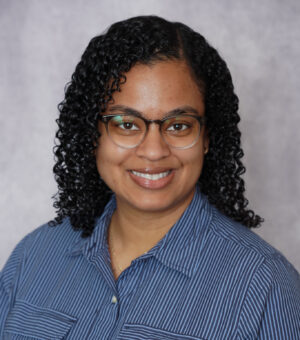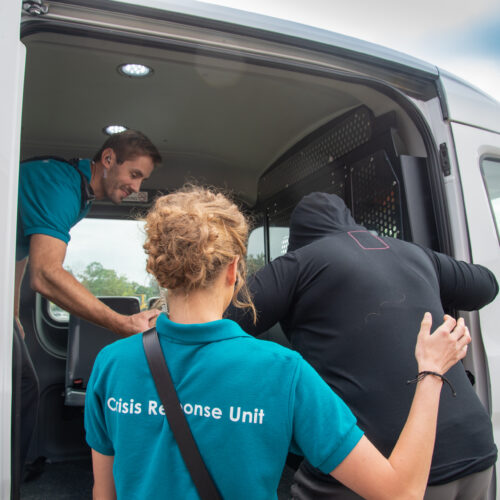Apply Now to Enhance HBCU Behavioral Health Crisis Responses
The Council of State Governments (CSG) Justice Center, in collaboration with the Center for Policing Equity (CPE), is hosting a virtual learning community focused on enhancing collaborative behavioral health crisis response strategies at Historically Black Colleges and Universities, also known as HBCUs.
The majority of college students today (60%) meet the criteria for at least one mental health problem. Depression, anxiety, and stress are among the top concerns for students on HBCU campuses. While the rates of mental health issues are similar across all racial groups, students of color are less likely to seek treatment. Specifically, White college students are twice as likely to receive mental health care compared to Black college students. In 2023, the CDC reported a 36% increase in suicide rates among Black people aged 10 to 24.
Recognizing the unique challenges and opportunities at HBCUs, this learning community is an opportunity to galvanize students, administration, faculty, public safety systems, and surrounding communities to significantly enhance HBCU’s crisis response systems to better address the needs of people in behavioral health crisis and help foster a culture of well-being and safety for all.
The learning community will be led by the CSG Justice Center, a national nonprofit that provides data-driven solutions for complex justice challenges, and CPE, a leader in public safety redesign. It will include opportunities for mutual learning through peer-to-peer support and guidance from leading experts in the field. Teams will also have a chance to troubleshoot any distinct challenges they are facing with CSG Justice Center and CPE policy staff.
Last year, the CSG Justice Center and CPE hosted their first learning community of HBCUs, which included Bishop State Community College, Howard University, Tuskegee University, and Xavier University. During these sessions, participants were provided with a blueprint on how to implement a community responder program and triaged crisis intervention strategies in a campus environment.
This year’s sessions will emphasize how to better leverage local partnerships to expand capacity and provide more comprehensive care. The goal is to foster a holistic, campus-wide approach to behavioral health that engages every level of the institution—from faculty and staff to campus security and community stakeholders. The topics for the sessions will be tailored to the specific needs of the learning community participants, but they could include considerations and best practices on resource mapping and needs assessments, community engagement, building a crisis infrastructure through collaborative local partnerships, and communicating impact.
Sessions will occur on Zoom 2:00-3:30 p.m. ET on the following dates:
- January 22, 2026
- February 26, 2026
- March 26, 2026
- April 23, 2026
- May 14, 2026
APPLY NOW.
When is the deadline?
Interested teams should complete and submit the above application—which takes approximately 10 minutes—by 11:59 p.m. ET on November 10, 2025. A CSG Justice Center or CPE staff member will follow up with you by November 18, 2025.
If you have any questions, contact Cierren Edmondson at cedmondson@policingequity.org.
Who should apply?
This learning community is open to all teams hoping to explore pathways to support student well-being and safety at HBCUs and ways to divert HBCU campus community members in crisis from unnecessary contact with police. Applicants must have a desire to use first response approaches to crisis related to conflict, substance use, and mental health that do not rely on law enforcement intervention.
Who should participate?
Applicants are encouraged to participate as an interdisciplinary team; suggested team composition might include any combination of the following: (1) a behavioral health provider; (2) a first responder (law enforcement, fire, dispatch, or emergency medical services representative); (3) a representative from campus-based programs that handle harm reduction services, peer supports, or campus housing; (4) student representatives, including from the student leadership groups, sororities and fraternities, or other influential organizations; (5) a member of the college or university administration; (6) a student activities or student life director; (7) athletic department staff; (8) campus faith-based or spiritual leadership; (9) a representative from a local 911 or 988 call-center; or (10) a college research partner. In addition to these team members, applicants are encouraged to include a student or a parent or family member of a student with lived experiences in substance use, mental health, or incarceration.
ABOUT THE AUTHOR

This May, the state of Washington passed legislation supporting the expansion of alternative response teams (sometimes called community…
Read More Developing a Common Definition for Community Responder Programs
Developing a Common Definition for Community Responder Programs
This May, the state of Washington passed legislation supporting the expansion of alternative response teams (sometimes called community responders) as a public safety service.
Read More












